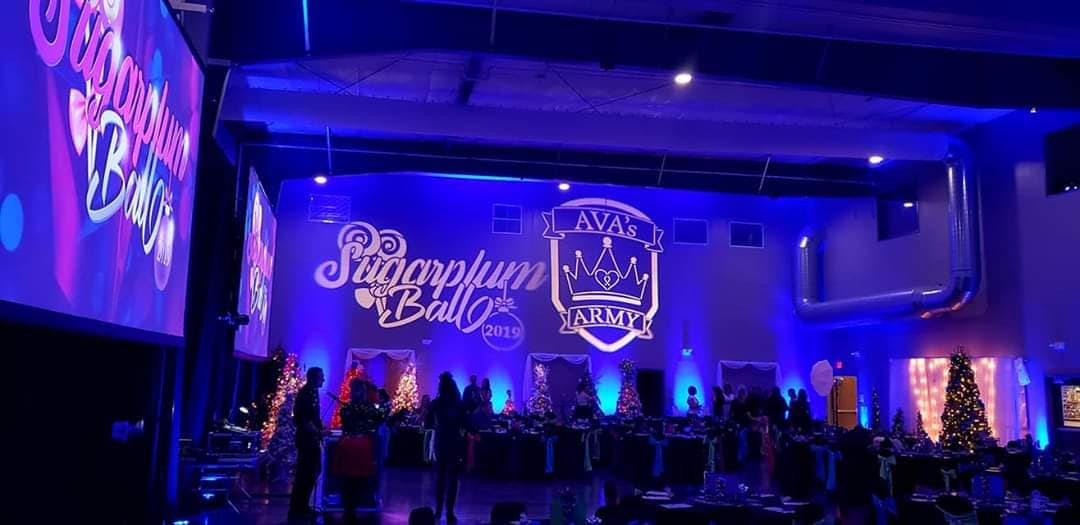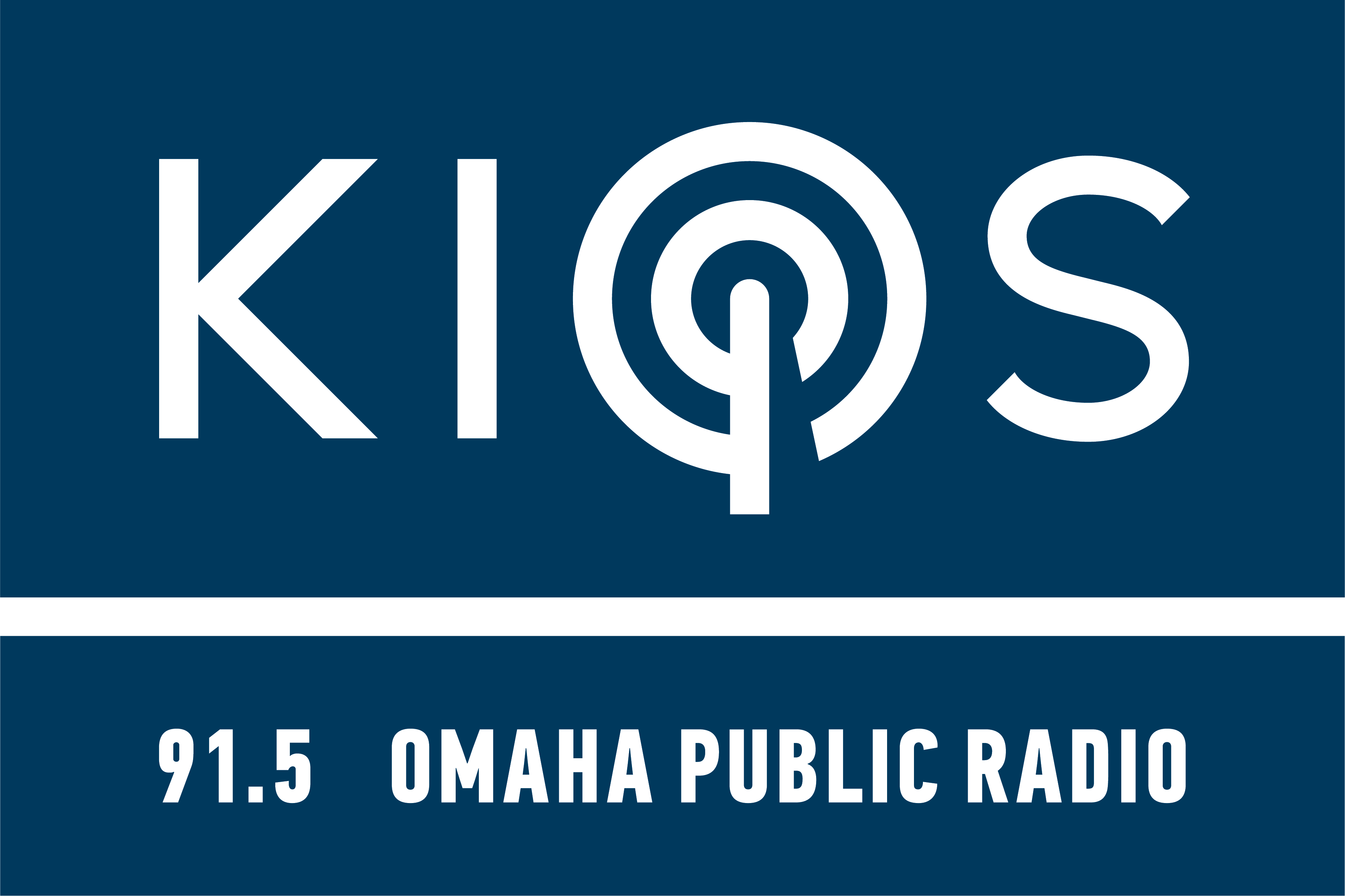Peace doesn’t last long in Amanda and Brady Reinert’s Gretna home.
On a seemingly calm Sunday evening, 11-year-old Ava was eager to share her cheerleading expertise with her 4-year-old brother, Bennett. They started with a forward tumble. Then it was time to do a flip.
Ava sometimes forgets her brother isn’t one of her dolls. She gets carried away.
“He’s real! He’s real!” Ava’s parents remind her. “You can’t toss him around!”
Ava loves her little brother, even though he gets on her nerves sometimes, she said in a big-sister tone, spilling honesty with a bubbly giggle. Bennett loves her, too.
Amanda, a former Mrs. Nebraska, likens her son to a kid who chugged a case of Red Bull. Ava, on the other hand, is such a picky eater that Amanda made her chicken nuggets on Thanksgiving. They are children enjoying childhood.
Amanda and Brady prayed for times like this.
Ava was diagnosed with leukemia when she was 4. She survived 800 days of chemotherapy. About a month after her final treatment, Bennett was born with Down syndrome – a surprise realized at birth, and one that makes him three times more likely to develop leukemia.
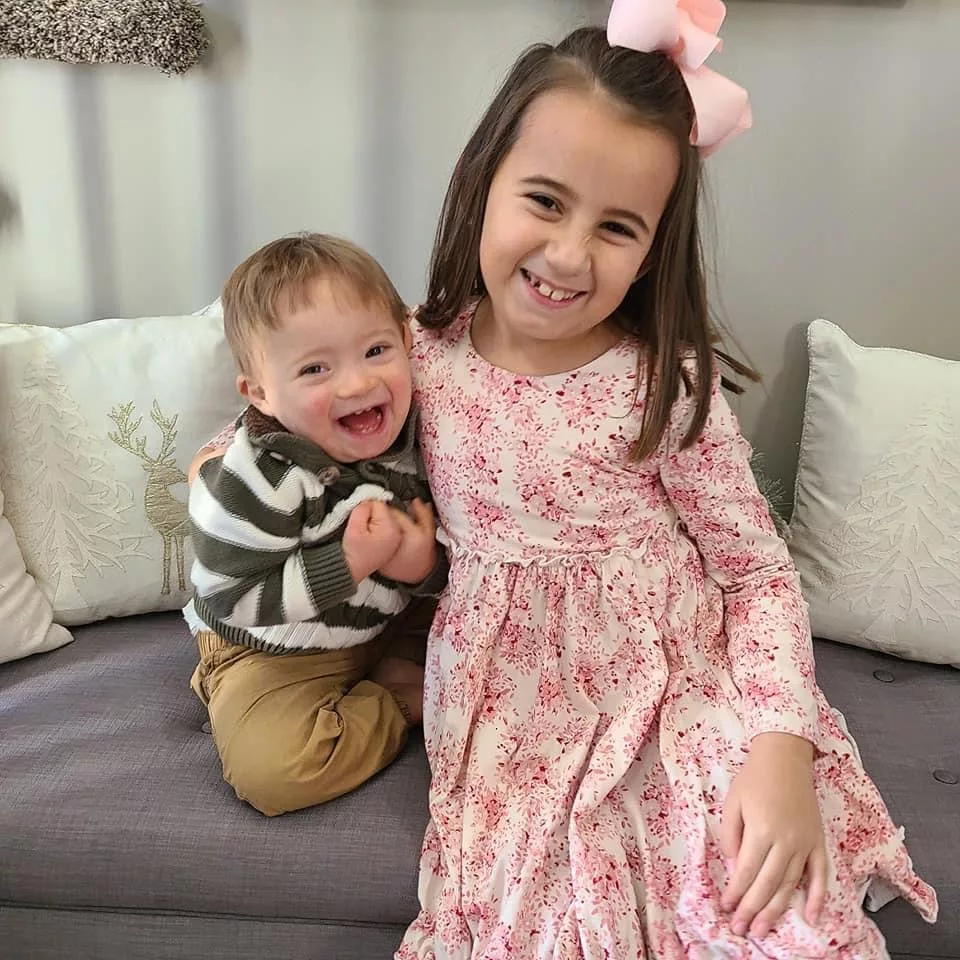
The Reinerts created Ava’s Army, a nonprofit dedicated to pediatric cancer research, out of a desire to help other Nebraska families. They quickly discovered a large community desperate for hope just like they once were.
“It feels like I have a connection to them,” Ava said just ahead of the fourth annual Sugarplum Ball, the nonprofit’s marquee fundraiser. “It almost feels like we’ve been through the same thing.”
Days later on Dec. 2, Ava and dozens of other survivors, decked out in ball gowns and formal attire, took to the spotlight. The Sugarplum Ball is a celebration, a night to let kids – survivors – just be kids. They took pictures with Disney princesses, swapped stories and, free of medical equipment and inhibitions, they danced.
In the lavish event hall were the words “Ava’s Army.” The preteen in a red dress jumped and stepped with rhythmic joy all night, far removed from the days in the hospital when she was unable to walk.
***
Amanda and Brady welcomed Ava into the world in October 2012.
Shortly after performing at her preschool holiday program, Ava rolled her ankle while playing at the Omaha Children’s Museum. When it didn’t heal, they went to the doctor. Doctors sent Ava home in a boot, but the pain spread. Her back hurt so bad she couldn’t walk.
Within days she was bedridden. Then came blood tests, X-rays and needle pokes. The 4-year-old girl screamed for her parents to make the pain stop. Amanda remembered one doctor suggested Ava was faking.
“I would sometimes feel sad but I knew that they were trying everything to make me happy,” Ava said. “It was definitely very scary because needles and pokes were just coming at me at once and it was just a very hard time.”
The family’s 13-week journey for answers culminated in a trip to Children’s Hospital in Omaha. On March 27, 2017, the diagnosis: leukemia. Chemotherapy started the next day.
There are no cancer treatments specifically developed for children. They receive the same chemicals meant for adults, just in a smaller dose.
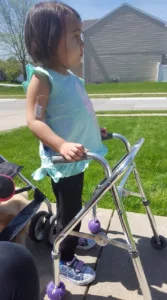
Ava endured daily rounds of chemo that first month. According to the American Cancer Society, 95% of pediatric cancer patients go into remission after four weeks. Those who don’t have their doses exponentially increased. Many don’t survive.
Amanda remembers seeing one of the nurses dressed in a hazmat-looking suit. Ava’s potential cure was so toxic that the nurse couldn’t risk exposure. Amanda, feeling mostly helpless, wanted to wipe her daughter’s tears away. Nurses told her she couldn’t. Ava’s tears were too hazardous to touch.
“I just remember being like, we are literally potentially killing her to try and save her,” Amanda said. “We still don’t even know the extent of the damage that we’ve done to her, and that’s very hard to live with.”
***
Amanda is well practiced living with things that are hard to live with. She was sexually assaulted dozens of times by her grandfather starting when she was 2, she said. She was targeted again when she was 11 by a close family friend.
Amanda didn’t share her story until after marriage. She made survivor advocacy her platform during her reigns as Mrs. Nebraska 2014 and Mrs. USA Universal 2017.
Amanda met a multitude of fellow survivors during that time. It only somewhat prepared her for the hurting community she’d join as a mother.
Nebraska ranks in the top 10 states per population for instances of pediatric cancer.
While there is no definitive cause, medical professionals know it likely is tied to genetic predisposition or environmental factors, said Dr. Don Coulter, a professor of pediatrics at the University of Nebraska Medical Center and a pediatric oncologist at Nebraska Children’s Hospital.
Unlike breast, colon and other types of cancers, no routine screening exists for pediatric cancer.
Coulter said four new cancer treatment plans have been created in the last 30 years – none of them specifically for pediatric cancer.
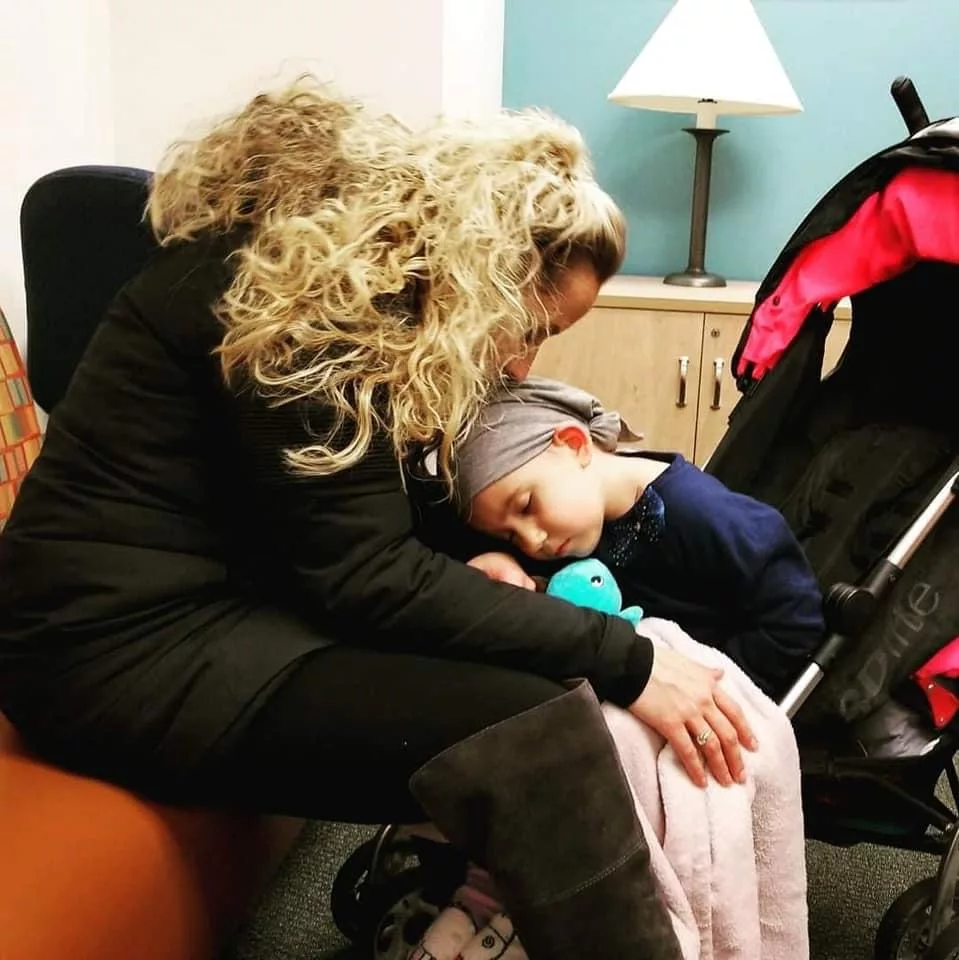
A child who survives the initial cancer diagnosis is 75% more likely to suffer from health problems the rest of their life. Those maladies range from kidney and liver issues to infertility to secondary cancers. Ava is three times more likely to develop breast cancer than other women.
Those statistics, in part, spawned Ava’s Army.
Health care professionals said groups like it address a crucial funding gap. The federal government, which bankrolls the largest amount of cancer research, dedicates a small percent of funds specifically to pediatric cancers.
In 2014, the Nebraska Legislature approved $1.8 million for pediatric cancer research. That allocation grew to $4.5 million in the state’s most recent budget.
Philanthropic groups and nonprofits address the rest.
“Philanthropic groups like Ava’s Army are critical to everything we do with pediatric cancer,” Coulter said, noting that a great deal of treatment and research is supported by philanthropic groups and families.
For Ava’s Army, the Sugarplum Ball is its largest fundraiser. This year’s ball raised a record $168,332. The nonprofit has raised nearly $500,000 in four years.
***
There are developing resources for pediatric cancer survivors, like the Children’s Nebraska survivorship clinic. The program, which is still relatively new, is meant to address long-term concerns. It helps families maintain access to physical therapy, behavioral health, nutrition and social work.
“I feel like we see our families benefit from the acknowledgement,” said Dr. Melissa Acquazzino, who runs the clinic. “OK, your kiddo is struggling in school. That is because we put chemotherapy into their spinal fluid. And we see that after treatment for leukemia, you’re not alone, we see this, we have the support we can provide.”
Families still turn to one another for support, for comfort, for community. It’s a role Amanda Reinert – described by her husband as the ultimate empath – has taken on.
It’s what led Carrie Olson of Omaha to the first Sugarplum Ball in 2019. She and her husband received donated tickets and took Leah, their daughter.
Leah was 2 when a suspected ear infection developed into bruising and lethargy. Within an hour of arriving at Children’s Hospital, a doctor looked Carrie in the eyes and told her Leah had cancer.
Leah was one of the 5% of kids who don’t go into remission after the first month of treatment. Doctors multiplied her treatment. She developed a case of temporary diabetes, and contracted a life-threatening blood infection.
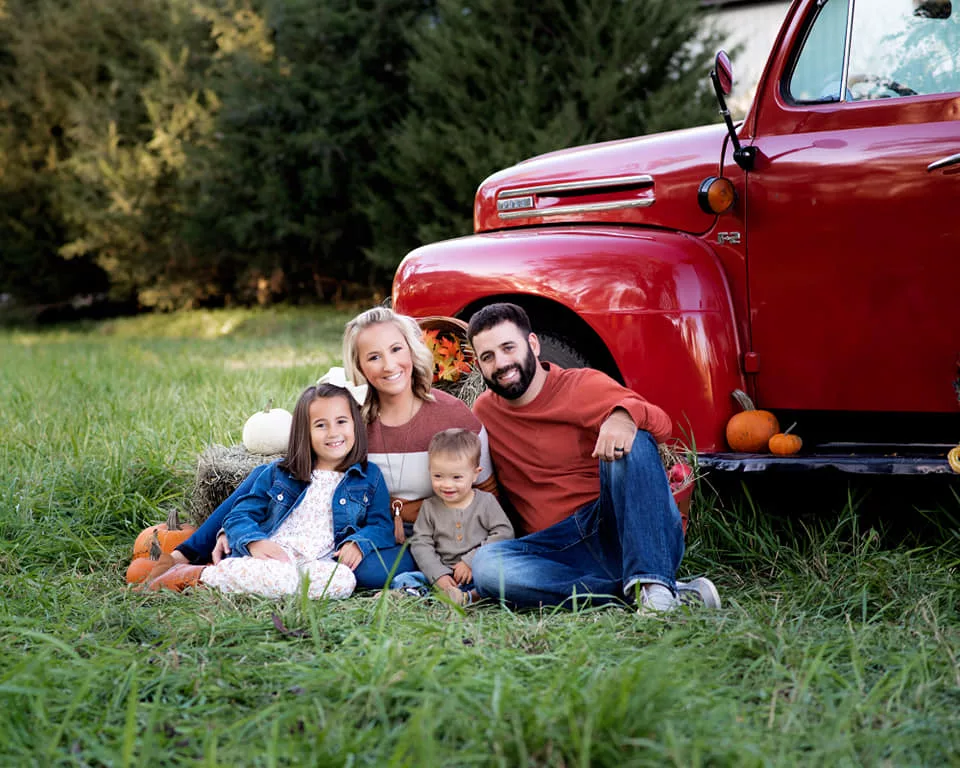
She attended that first Sugarplum Ball months into treatment. And for the first time in just as long, she was just another kid.
“She got to dance with her dad for the first time at an event,” Olson said. “That meant the world to us. To be a regular kid and make some happy memories while we were going through such a traumatic experience was really amazing.”
In treatment, Leah and the other children bonded over shared hardships. They showed each other their ports and talked.
Not many children can relate to 27 surgeries, 20 blood transfusions and over 600 pokes.
Leah, now 6 and in remission, went to preschool last year and asked her classmates where their ports were. None of them had one. “Isn’t that crazy?” Leah told her mom.
At the Sugarplum Ball, Leah freely talked about ports and the harrowing experiences that consumed half her life. She ran onto the dance floor with nearly 150 other kids when the DJ played “Party In The USA” by Miley Cyrus.
This year Ava’s Army invited families of 20 survivors, who ran through a tunnel to music and applause.
“It’s like a connection of friendship between us,” Ava said. “A little girl, last year, and me, she also got diagnosed, and we were just dancing at the ball and having a blast … It was, like, amazing. It was like we were on a cloud and rainbows.”
At the ball, Amanda stepped back to marvel at her daughter on the dance floor. Now 11, Ava isn’t afraid of needles. She really likes her new thick, luscious hair. Her old hair fell out during chemotherapy.
“One thing about our family,” Amanda said just days earlier, “is that we’re pretty resilient. … We just kind of roll with the punches.”
The Flatwater Free Press is Nebraska’s first independent, nonprofit newsroom focused on investigations and feature stories that matter.

